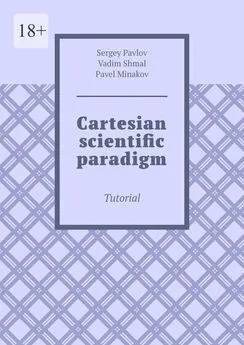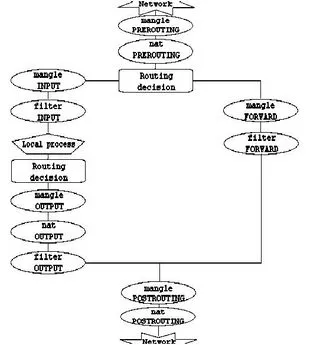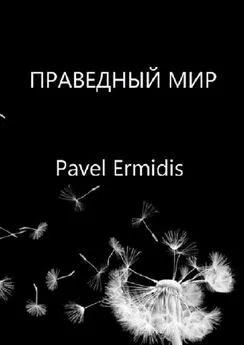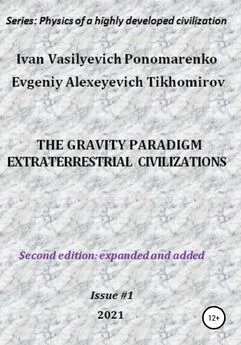Pavel Minakov - Cartesian scientific paradigm. Tutorial
- Название:Cartesian scientific paradigm. Tutorial
- Автор:
- Жанр:
- Издательство:неизвестно
- Год:неизвестен
- ISBN:9785005566966
- Рейтинг:
- Избранное:Добавить в избранное
-
Отзывы:
-
Ваша оценка:
Pavel Minakov - Cartesian scientific paradigm. Tutorial краткое содержание
Cartesian scientific paradigm. Tutorial - читать онлайн бесплатно ознакомительный отрывок
Интервал:
Закладка:
Without direct access to «other minds», we must, based on the behavior of others, conclude that their personal mental life is similar to ours. This conclusion became a kind of epistemic reflex. According to the philosopher John Searle, this has led to one of the most enduring beliefs in modern intellectual life: after all, we are not limited in our consciousness only by ourselves. This may not be the case. We have minds that are capable of performing truly intelligent reasoning and seeing things in truly mysterious ways, and they are probably superior to our own, and they too can be used to understand and improve our lives. They may not be as effective as we are. The only reasonable position on this issue is that our minds are as smart as possible, and in some ways better.
Take intelligence, for example. The fact that we, by and large, have minds equal in general capacity to our own is clearly not a good sign that these minds are similar enough to ours that we can have similar experiences or understand each other. As Searle put it, «To say that we are essentially ’the same animal’ in a certain respect means nothing at all». He has a simple answer to the seemingly outrageous assertion that we can know ourselves in relation to another human being, namely: «As for the assertion that we can know one human being in relation to another human being, I’m quite prepared to say, that such knowledge is absolutely useless».
You may not find this point of view entirely clear, but it is nonetheless an important finding, even if Searle is to qualify it with the remark that he is willing to discard it on the grounds that, being «similar enough», really useless, that is, it actually does not contribute to the accumulation of knowledge. You and I may be perfectly capable of doing intelligent things such as reading or listening, or making decisions on difficult, vague, and potentially conflicting issues, but our special abilities can never justify us, even in relation to someone who, in their queue, as smart as we are. Anyone who wants to claim that we are really equal or «are the same animals», after long and persistent reflection, had to come to the conclusion that our minds are radically different and simply fundamentally incomparable.
But here another interesting question arises. It would be easy to view this differentiation as proof that the human mind has abilities that we do not share with any animal. But Searle sees that is not the point.
It may seem that I have a little roughly characterized Searl ’s position as a position that is in the spirit of utilitarianism, as a determination to maximize the overall well-being of humanity. But he truly believes that this «sane maxim» should guide the thinking of everyone involved in a project to improve the well-being of people, from the highest courts to ordinary citizens, with the goal of building a future that will be as rich and interesting as the one we can imagine now. According to him, all those who followed Searle’s example and supported the project of theorizing about «collective unconscious» and «symbolic thinking» were forced to do so because they are convinced that they are looking for ways to expand human power. But it also means that they have to be willing to say no to certain things when they are faced with the opportunity to make humans more and more superior to other animals. It is an area of research that, he says, is not related to the question of whether we are «better» than other animals, but rather to how we should avoid «all possible threats to our own growth and the growth of our offspring, including threats our intellectual achievements».
Indeed, as Searle has often pointed out, there is not a single animal that knows why it exists. And we, who truly know why we exist, he argues, must pay the price for being so smart and capable. He says we should not allow ourselves to fall in love with our powers and our tendency to regard our minds as unique. We must remember that what sets us apart from other animals is simply our mind.
Discussing man as a «rational animal», Descartes said: «A rational animal does not in any way correspond to the conditions of man, since it is as superior and independent of him as his imagination is independent of him». Descartes considered the mind above the body and in such a way that it could exist without the body, although he did not want to make a specific distinction between mind and soul, as well as mind and body. In Discourse on Method, Descartes gave an example of such a way of thinking. He argued that the process of creating an object is essentially the same for creating an object in the mind and creating in the physical world. Descartes said that we should not think of the mind as a separate substance, as Plato would like us to do, but we should not attribute to the mind the ability to create the physical world. «The essence of this great whole, so far from being something absolute, is in fact a multitude of different things connected together by the smallest connections, but united by many small differences».
We should be divided into mind and body, but Descartes wanted to stick to the idea that the body is not a physical substance, as materialism claimed. We can think of the mind as an intelligent being or thinking object and consider that the mind has no material substance. We can consider that the mind is superior to the body in its capabilities. However, the mind has a material part of its reality. Descartes discussed the fact that «although we are in a state of contemplation, nevertheless, in fact, we are in a state of bodily existence,» but he made it clear that «all the organs of the body are still there and move in accordance with immutability. the nature of the mind or soul». Thus, the body does not cease to exist, and we can think of the mind as created from the body, which in a sense is. Descartes said: «The soul is not the only thing, but it is a substance that has intelligent powers that make up the body, which, again, is the soul».
To achieve his rational goal, Descartes rejected materialism. This meant that Descartes rejected both the idea that the body is a material substance and that the mind is separate from the body. Descartes understood materialism as the point of view according to which the body is a material substance, that the mind is different from the body and that the body has nothing to do with the mind. Descartes believed that in a sense, the mind is not a separate substance, but a substance that exists in the body. To say that the body is material, Descartes believed, means to say that the mind is not a rational thing, but a thing that can be controlled with the help of the body. In other words, the mind is a rational entity that can be viewed as separate from the body. In his Treatise on Method, Descartes said: «One thing cannot think of another thing independently». Descartes considered reason as one substance, rational. Descartes argued that if mind were a separate substance, then we could create ideas about other things and things other than mind. This would be impossible for the mind, because the mind is essentially a body. «It is necessary that the mind, as the rational faculty of the body, belong to the body; that it, and not the body, was the substance of the mind; that it is a material part of the body; and that he should be a part of the body, like that part of the body that consists of rational faculties».
As I mentioned earlier, Descartes did not adhere to the idea that the mind is a separate substance from the body. This is a decisive moment in Descartes’ understanding. When he discussed mind and body, he insisted that there was a difference between the two. He believed that the mind is a rational thing, but inseparable from the body. Rather, the body is an effective cause, a tool that the mind uses to achieve its goal. «The relationship of things to each other is always determined by the nature of things. It is intelligence to produce what is in the mind, what makes them change, what makes them exist». Mind and body are intelligent things, but not separate substances. Descartes believed that although we can think of mind and body as if they were separate substances, mind is the effective cause of the body. The mind is the inner force that exists in the body and through which it is built. An essential part of Descartes’ understanding of mind is that mind and body are not separate substances. This is not to say that mind and body are separate substances. They are one and the same substance. In a sense, the body is simply a tool that is used to help the mind achieve its goal.
These are words that we know come from the Latin verb rerum (asire in English). Feelings alone, and also only imagination, will not do anything, neither see, nor hear, nor think, but must be connected together with the intellect (lat. Intellectus), and they will be ready to produce sensation. For example, if you want to find out whether there are two things or not, you have to reason to do so: the mind, which is of the same nature as the imagination, will cause the sensation of the existence of two things; because a reason alone, if you set it up to conjure up a sensation, will cause both sensation and doubt; but doubt alone has its own nature. The difference between existing and non-existent things is this: every thing that exists has a cause, and every thing that does not exist has no reason. Therefore, there is a reason for everything that exists, and there is no reason for everything that does not exist. So, this reason has existed from eternity; for each cause, it is already present and remains after a series of things: for example, those things that were caused come to their end and die. Therefore, this cause of things exists from eternity, and this cause of things does not exist only from time.
In the second part of the Treatise on Man, Descartes develops the concept of reason, which combines reason, imagination and thought. This is the first attempt by modern philosophy to develop a theory of mind, because, in addition to believing in what is believed to be true, the object must also judge whether it possesses that property. Descartes’ theory does not attempt to create an object called the «comprehensible world» that does not depend on the mind that perceives it, but rather represents the mind’s perception of the transcendental mind.
In his earlier Reflections books, Descartes addressed epistemological questions about what knowledge is and how we acquire it, and how knowledge about external objects can be obtained. In the third book, he presents the idea of an inner mind (intelligible world) for solving the problem of cognition in the physical world. As he notes: «So, if I know this, I must also know that I do not know it; and if I know that I do not know this, I must know that I know it».
His solution to the problem of epistemological knowledge is that mind exists somewhere, which is itself a judgment, and that mind itself is a single judgment. This is the mind, and the mind is the domain of knowledge. Descartes’ theory of mind as the mind behind the world is to some extent a complete interpretation of the «mind behind the world» of Pythagoras, but Descartes’s theory is still sufficiently related to the idea of Pythagoras to qualify as a form of mind dualism and body. The story of how we can find out what is in the mind of the world in Reflections can be seen as a continuation of this.
Descartes begins the fourth book with the argument that, although the world seems absolutely solid, the principles governing all the complex phenomena that we perceive around us are not rigidly fixed. They are constantly being modified or transformed. As Descartes says in his article «An Essay on Human Understanding», the sun seems to move across the sky because the changes that occur in the fixed world that we perceive in general includes the movements of the planets and stars, and what he could describe these changes, as a continuous movement, would mean that the underlying substance is subject to constant change, and therefore is not absolute. Instead, the only substance that is not subject to constant change is the mind that we have about ourselves, the mind that is material. This mind is an understandable world, but not everything is clear, and those things that are incomprehensible are called «beings» or «active principle». The idea that mind or some other immaterial, non-causal principle should be responsible for the world that we perceive around us has been called «metaphysical materialism» or «materialism from within».
Читать дальшеИнтервал:
Закладка:










